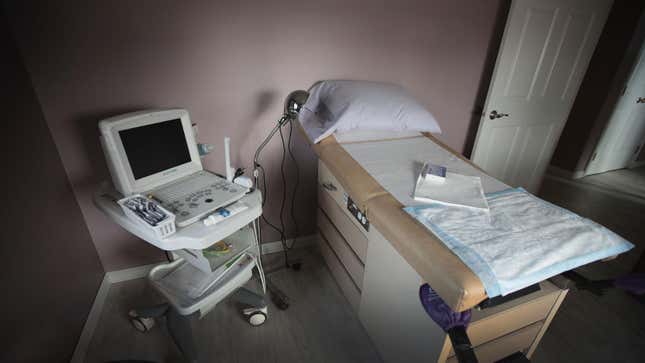Abortion Clinics Have Already Stopped Scheduling Appointments in Multiple States
Abortion is banned in Oklahoma, but Planned Parenthood clinics in South Dakota and Alabama are no longer providing the procedure.
AbortionPolitics

South Dakota’s only abortion clinic performed its last abortion on Monday—not because abortion is banned in the state, but because it could be banned soon, the New York Times reported. (The clinic, a Planned Parenthood, is still seeing patients for birth control and other health services.) South Dakota has become the second state with no legal abortion, after a bounty-hunter-style total ban took effect in Oklahoma in May.
While the leak of a Supreme Court draft opinion suggests that the court is about to overturn Roe v. Wade, the final ruling hasn’t been released. The court typically releases its opinions on blockbuster cases at the end of June, but the decision could come any day now. And the abortion clinics in states with pre-Roe abortion bans or trigger laws, which would automatically ban abortion, are trying to navigate the legal reality while not scheduling patients for appointments they assume they’ll have to cancel. The Times also noted that several Planned Parenthood clinics in Wisconsin, where there is a pre-Roe ban, aren’t planning to schedule patients after June 25.
-

-

-

-

-

-

-

-

-

-

-

-

-

-

-

-

-

-

-

-

-

-

-

-

-

-

-

-

-

-

-

-

-

-

-

-

-

-

-

-








































